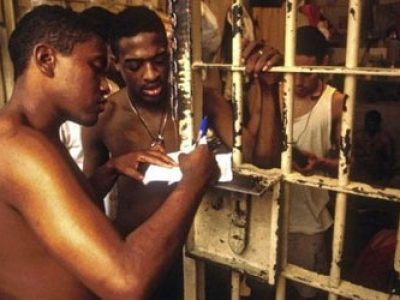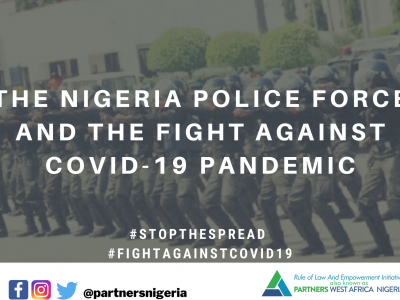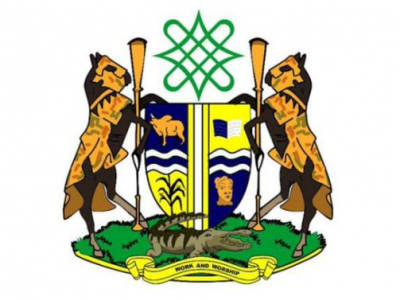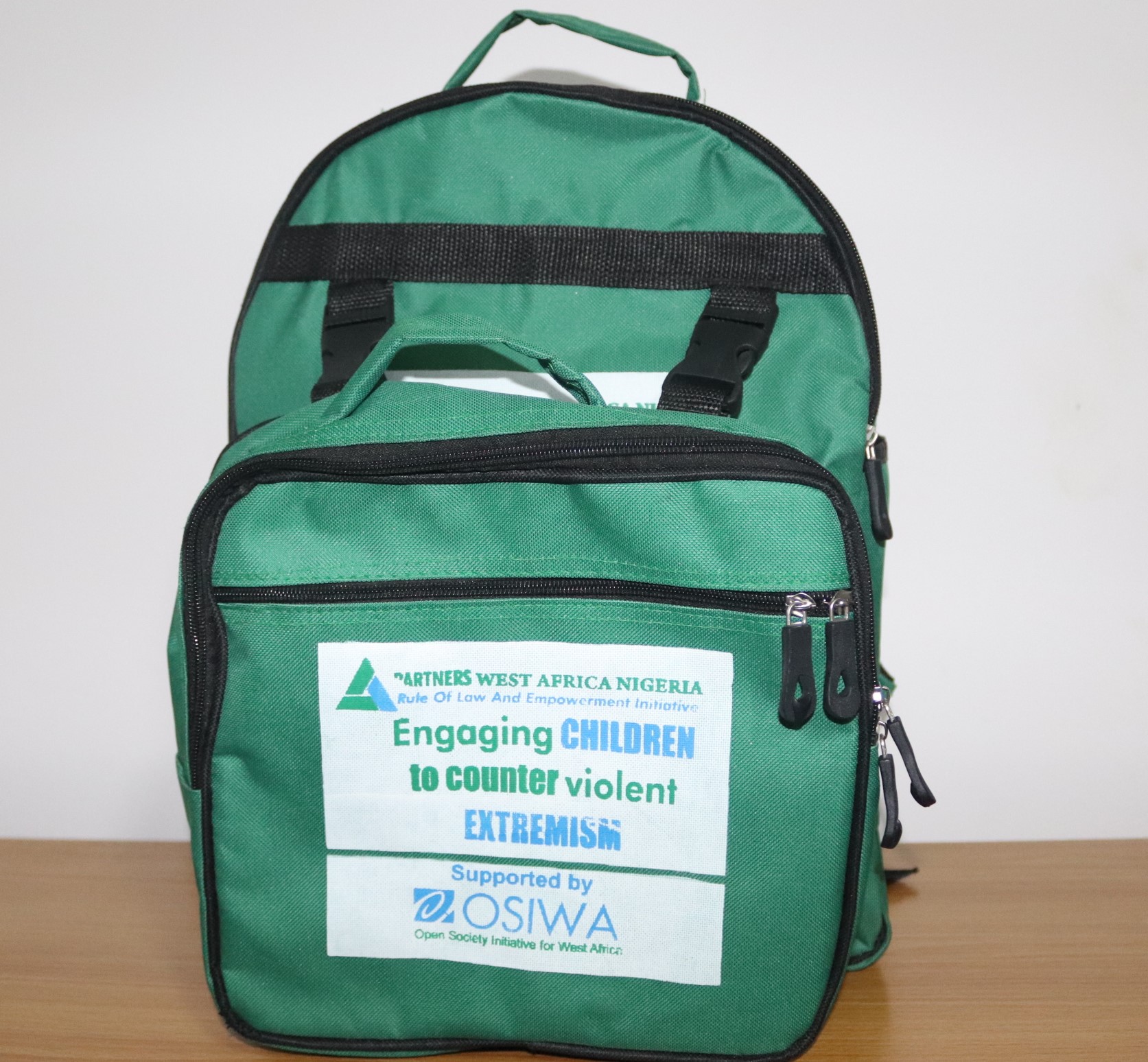
THE BACKPACK
There are certain things in life that a privileged upbringing causes one to take for granted. The means may have changed over the years, but the level of privilege remains the same. Our parents who grew up in townships and urban cities, in the pre democratic, military era walked several miles to school, with sandals on their feet and satchels in their hands (those who could afford it). Millennials and Generation Z were born in the era of the school bus, and the fancy backpacks with wheels. For those who were availed the opportunity to go to school, the least of their worries was how to get there, and where to put their learning materials.
On the other side of the divide however, are those who are unfamiliar with the term privilege; both its literal definition, and figurative implication. The things perceived as the most mundane to a more advantaged group represent something much bigger to some others. A backpack for example, would not just be a receptacle for storing books, but would represent the availability of an otherwise scarce commodity- Education.
Nigeria currently has an Out-Of-School-Children population of over 10.5 million, specifically within the ages of 5- 14, even though primary school education is officially free and compulsory. A larger percentage of this number is from the Northern part of the country, with a great number of them displaced as a result of the violent conflict in the area. Another phenomenon contributing to the steady increase of Out-Of-School children is underage/ teenage pregnancy. Young girls, especially in areas affected by conflict are victims of sexual abuse, which often times leads to pregnancy, causing them to drop out of school.
Adamawa State in the North East has been affected by the activities of the terrorist group-Boko Haram, with thousands of persons killed and numerous communities displaced since the inception of the activities of the group. The Numan Federation in particular (comprising of Numan, Demsa, Lamurde, Guyuk and Shelleng Local Governments) has been a target for attacks, resulting in the destruction of schools and community centers.
Rule of Law and Empowerment Initiative also known as Partners West Africa Nigeria (PWAN) recognized the need for something to be done to reduce this out-of-school population, while also providing some level of healing and psycho-social support for children who have been victims of the conflict. With support from the Open Society Initiative for West Africa (OSIWA), PWAN is establishing Informal Learning Centers (LCs) in two communities within the Numan Federation- Dong community in Demsa LGA and Kikan community in Numan LGA to cater to 120 children. The ‘Engaging Children to Counter Violent Extremism’ project aims to significantly improve the quality of life and learning of children ages 4- 12, in Kikan and Dong Communities, Adamawa state, through art, numeracy and literacy education in an informal, fun and engaging learning environment, while also serving as a transition phase, equipping children to return to the formal schools. PWAN aims to develop an innovative method of countering violent extremism, which is both simple and sustainable, by engaging children in conflict prone areas as a means of countering radical narratives.
The project is working with Mavis Computel; an educational technology company responsible for the development of the Mavis Talking Books™ and Mavis Education Model™, and Mbula Foundation- a grassroots volunteer organization within Adamawa State.
Through this project, PWAN hopes to further reinforce the narrative that a schoolbag should not be a sign of privileged upbringing; the bag and its implication for education should be as common as food and water. Every child deserves quality education- a beautiful backpack should just come with the territory.
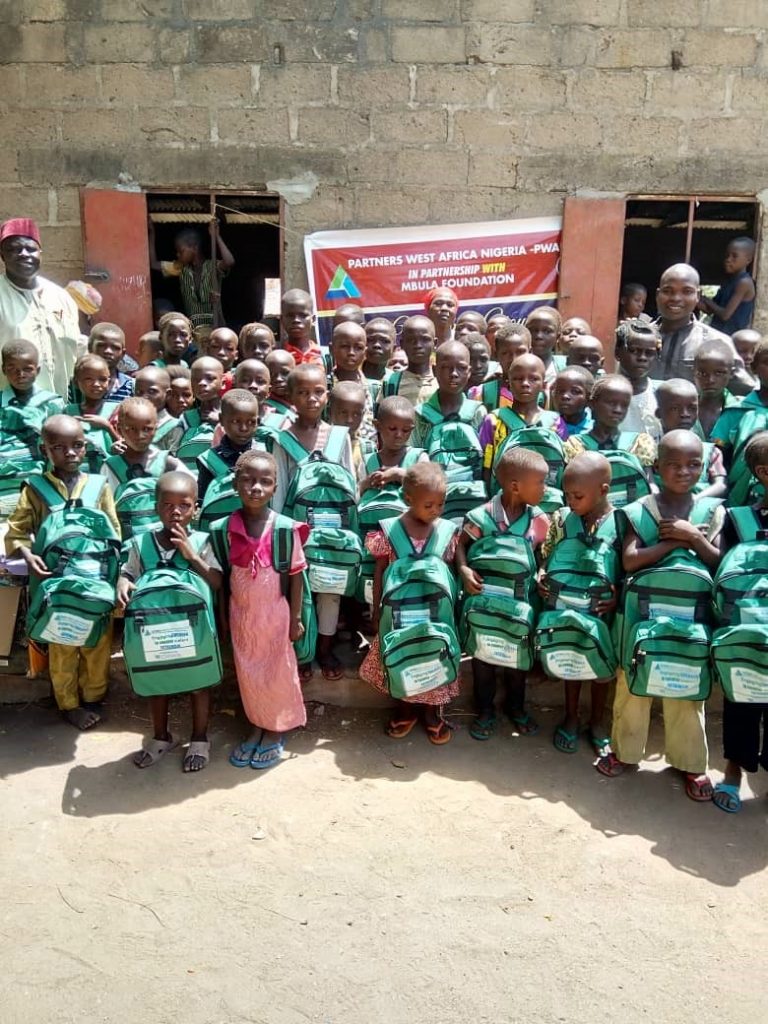
Children at the Opening Ceremony of the Learning Centre in Dong Community

